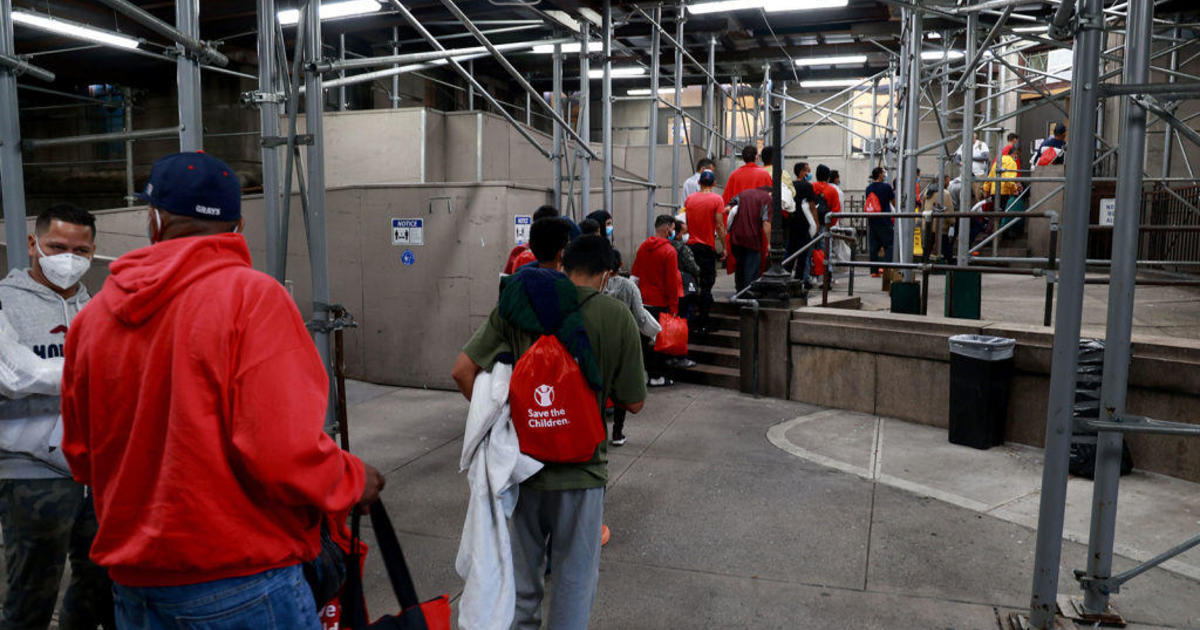The Biden administration will not be extending the legal status of tens of thousands of Venezuelan migrants who were allowed to fly to the U.S. under a sponsorship program designed to reduce illegal border crossings, according to U.S. officials and internal documents obtained by CBS News.
The administration first launched the program in October 2022 to discourage Venezuelans from traveling to the U.S.-Mexico border by offering them a legal way to enter the country if American-based individuals agreed to sponsor them. It was then expanded in January 2023 to include migrants from Cuba, Haiti and Nicaragua, whose citizens were also crossing the U.S. southern border in record numbers at the time.
As of the end of August, 530,000 migrants had flown into the U.S. under the policy, known as the CHNV program, government figures show. They were granted permission to live and work in the U.S. legally for two years under an immigration law known as parole, which presidents can use to welcome foreigners on humanitarian or public interest grounds.
Roughly 117,000 Venezuelans have come to the U.S. so far under the CHNV policy, according to government data. The first group of Venezuelans who arrived through the program two years ago are set to lose their parole status later this month.
Some advocates expected the Biden administration to extend the parole status of CHNV migrants, like it did for tens of thousands of Afghan evacuees and Ukrainian refugees who were also allowed into the U.S. under the parole authority.
But the Department of Homeland Security has decided against offering Venezuelans parole extensions, or what the government calls “re-parole,” two U.S. officials told CBS News. The officials requested anonymity to discuss the decision before its formal announcement.
Instead, the Venezuelan parolees, as the government calls them, will be given notices instructing them to apply for another immigration benefit or leave the country, the officials said.
It’s unclear how DHS will treat the cases of Cubans, Haitians and Nicaraguans, whose parole periods will not start to expire until early next year. Former President Donald Trump has indicated he wants to end the CHNV policy, along with other Biden administration immigration programs.
Venezuelans may be eligible for Temporary Protected Status if they arrived before July 2023. They can also apply for asylum, but that benefit is only available to those who can prove they are fleeing persecution based on their religion, race, political views or other grounds. Those with U.S. citizen relatives who are willing to sponsor them may be eligible for an immigrant visa.
Representatives for DHS did not immediately respond to requests for comment.
The decision to refrain from offering parole extension to Venezuelans migrants could leave many of them in legal limbo, without the ability to work lawfully and no longer exempt from deportation, unless they manage to get another status. Whether any Venezuelan parolees could eventually be deported is unclear, since the government in Caracas currently rejects U.S. deportations.
The move is also likely to draw significant ire from progressives and immigration advocates, who can argue the Venezuelans are being treated differently than the Afghans and Ukrainians who came to the country under similar processes.
But the decision could also blunt criticism from Republicans, who have strongly denounced the CHNV policy as a fraud-ridden program that circumvents the legal immigration processes established by Congress. The policy was paused for weeks this summer as officials investigated fraud concerns relating to those applying to sponsor migrants.
The CHNV policy has been a pillar of the Biden administration’s strategy to deal with the unprecedented levels of migrant crossings recorded at the U.S.-Mexico border since it took office in 2021. It has paired the program, and other processes for migrants to enter the country legally, with restrictions on asylum for those crossing the southern border unlawfully.
Following the enactment of partial ban on asylum claims in early June, unlawful border crossings have fallen to and remain at a four-year-low. The drop in illegal crossings by the migrants eligible for the sponsorship policy has been even more pronounced, federal data show.

